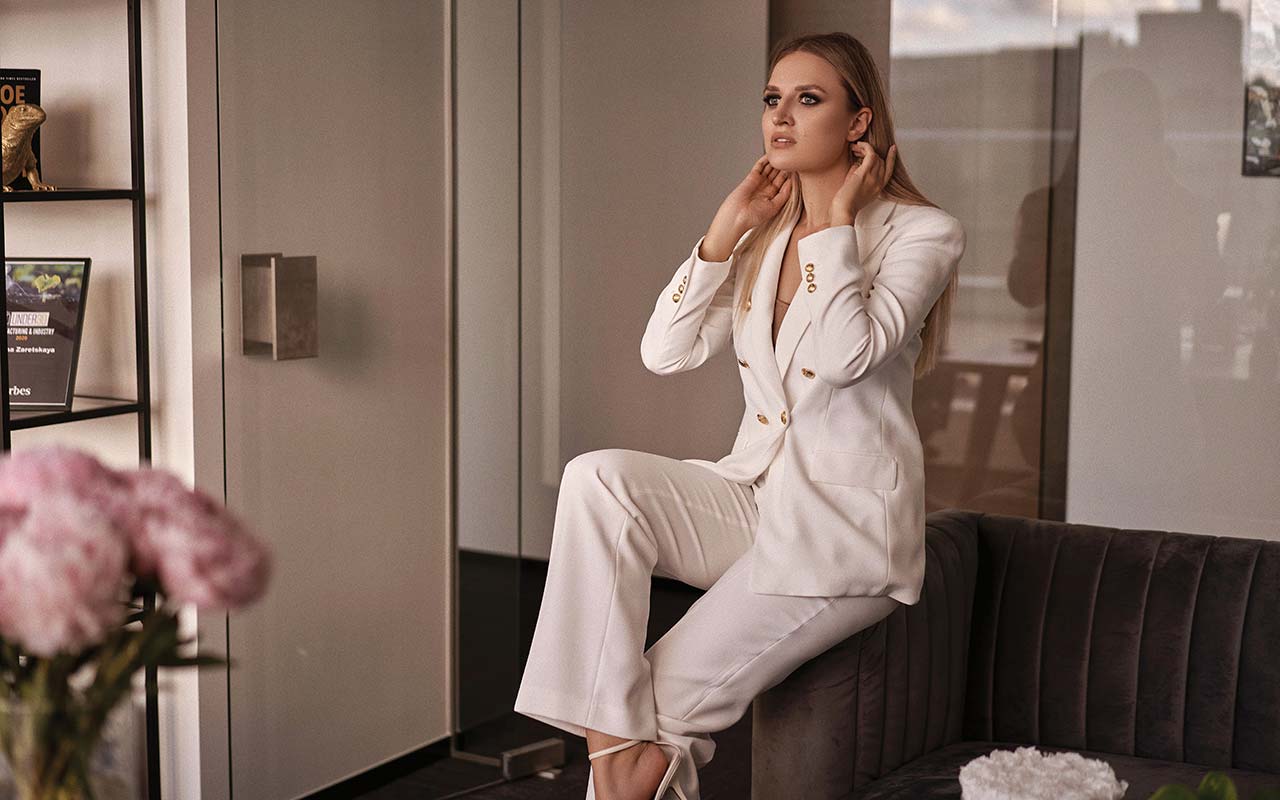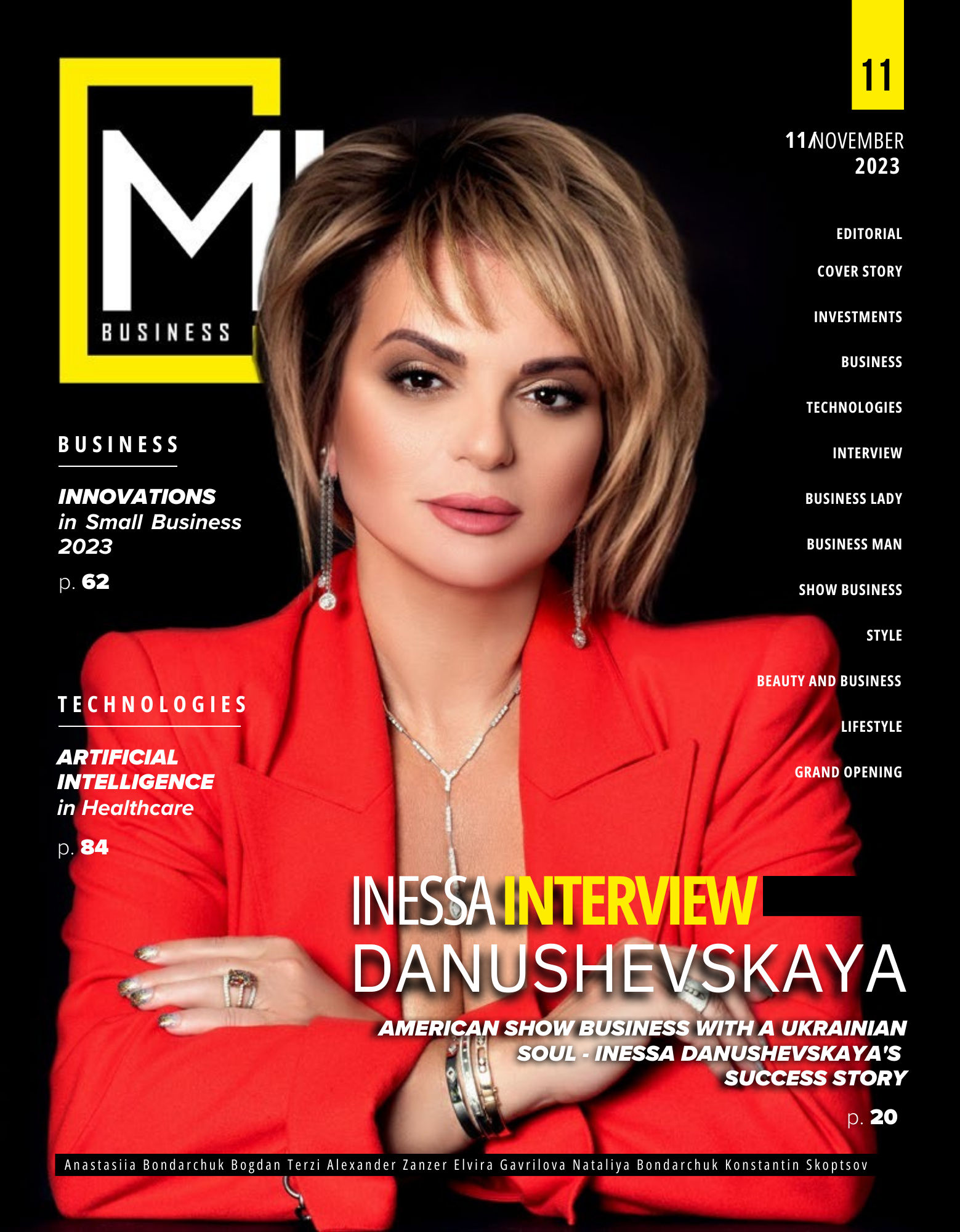Tatsiana Zaretskaya: I love bringing new technologies to this world
Our magazine’s editors decided to dedicate the first issue of Business ML Portugal to Ukraine. It has been more than a month since Russia launched a full-scale attack on the territory of Ukraine.
Millions of Ukrainians were forced to leave their homeland and their homes. The duty of all freedom-loving people now is to help Ukraine and support its inhabitants.
The heroine of our issue, the founder of the agtech company Laava Tech Tatsiana Zaretskaya, seeing what the Ukrainians have to go through, could not stay away. She helps children and teenagers who suffered from the war in Ukraine.
We talked with Tatsiana about business, the role of charity in her life, and work-life balance.
Tatsiana, you have founded one of the most promising startups in Europe. Tell us about its uniqueness and how the idea of its creation came about.
I am a lawyer by background. I moved to Estonia around 8 years ago to pursue my law degree. I never thought that I would be acting in the startup industry or become a startup founder. Especially, I could not imagine that I would change the field of my expertise because I was and still am very passionate about law.
But when I was in the last year of obtaining my Master’s degree, the university where I studied, Tallinn University of Technology, was holding a program which was called STARTERtech where anyone can take part and pitch their idea or join any team.
I don’t want to sound too arrogant but I went there and I wasn’t inspired by any of the ideas. They were all about gaming and insurance. It didn’t seem like something that would resonate with me.
I decided to actually pitch my own idea, which came from my childhood background. I was born in Minsk but all my life I was living with my grandparents and parents in a very small apartment, my grandma and I used to grow tomatoes professionally. So every spring she was planting tomatoes and putting them in those small plastic cups all around the apartment before moving them to the greenhouse.
They stayed in our apartment for around two or three months. There were literally hundreds of them (if not thousands), and they smelled strongly. We all know that tomatoes have this very specific smell when they start to grow. Once they have been moved to the greenhouses then I was supposed to go there to take care of them at least twice a week. I hated that because there is really a lot of work.
I have not eaten tomatoes up until this day.
When I joined the startup competition, my idea was to develop some technology that would help to grow tomatoes more efficiently. I have never thought that this could be something serious but once my team and I started working on it, it became very interesting.
We won the competition. The prize was a trip to Silicon Valley and to some other exciting places. That’s how I started to grow my network in the startup industry and realized that I do want to pursue this path.

You are also known to the public as the girl who pitched in the hole in the ice. How did the idea of taking part in the Polar Bear Pitching Competition come to your mind?
Right after STARTERtech, which finished in mid-December, there was another competition called the Polar Bear Pitching Competition.
The idea is that you are supposed to pitch while standing in an ice hole carved in the frozen Baltic Sea in February! That’s how the jury sees how badly you want to realize your idea and how well you can present it, how passionate you are about it, but obviously, they evaluate your idea and your traction.
I still was working as a lawyer full time. I told my colleagues that I would like to participate. They answered that I am insane. But I really wanted to participate and to be in the TOP-10. First I went from the semi-finals to the final. And I won!
It was very hard, I was pitching for almost 4 minutes. I thought I was speaking very fast, the water was around 0°C. But in reality, I was talking very slowly. The jury really liked the technology that we were building. That was the moment when I realized that I don’t want to do anything else; I just wanted to concentrate on my company much more than be a lawyer.
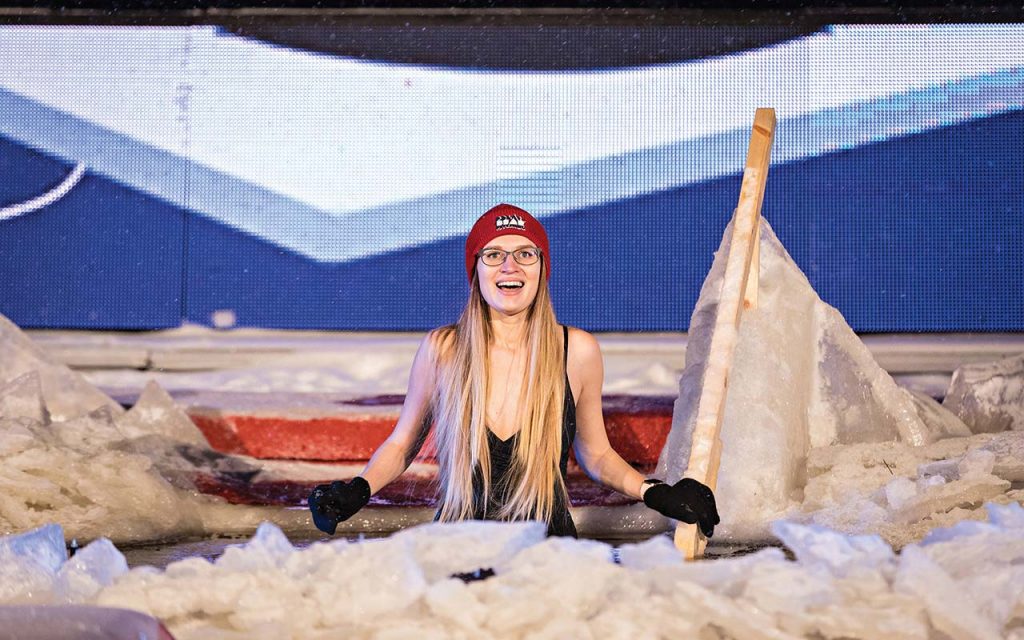
How did you get your first clients? Has your customer acquisition strategy changed since then?
The first clients came from piloting. We were asking random companies if they wanted to try our technology and give us feedback. We were going through our contacts and then obviously seeing who had greenhouses or indoor farms close by.
Our acquisition strategy has changed a lot since then. Now it’s not only several people in the team. We have a very specific marketing and sales department. We have a lot of people who think the processes through, who create pipelines, and who approach the customers. We have a very specific strategy in how we like to give a trial of the technology, which steps we need to follow and the technology itself has improved quite a lot.
Now we don’t have to convince customers that they need our technology, they just see it, get to experience it, and really want it. So it’s very different now, it is not a startup anymore, it’s an actual business.
It also helps a lot that we have a very good reputation. We have very strong support from various partners, from the Ministry of the Environment of the Republic of Estonia to the European Commission, which means a lot to our customers as well.

As you know, your activities are not limited to working at Laava Tech. Can you share the details of your other projects that you are already implementing today?
Laava Tech was my first company. I have recently launched another company, which is called «Meliora». That is a carbon offset trading platform, which provides carbon offsets produced by deep tech companies. In Latin «Meliora» means improving for better because throughout these years I became really passionate about sustainability and cleantech.
I believe that we still have a chance to save our planet and improve the quality of life on our planet. Most of it will come from deeptech companies which develop technologies that can change this world and improve it for the better.
Like Laava Tech, where we not only found a way to reduce energy consumption by 80% for any indoor farming facility. We improved the quantity and quality of the yield.
We implemented various techniques from machine learning to computer vision to be able to have the best technology out there. By building that, I realized that as a company, which brings good to this planet and works with photosynthetic processes, and decreasing energy consumption, we are also able to produce carbon offset, which is a really huge topic right now. As this is pretty much the only thing that can help us to reach net zero. It doesn’t matter how much you reduce or innovate new technology or processes within your company, you cannot reach net zero just by that. There will always be a small amount you have to cover with carbon offsets. And the quality of carbon offsets right now is worldwide incredibly low because they are coming from natural resources.
I thought of creating a platform that would help bring to the market high-quality carbon offsets that can be tracked 24/7 with technology; that would be a game-changer. We are already active, and I’m really excited about how fast we have been growing over the last several months.

How important is good marketing for startups? Do you invest in advertising?
Marketing and sales are very important. But when you have a very good reputation and a strong brand, then marketing is not really needed. Especially when your primary target customers are corporations. Or when you work in an «old-fashioned» industry like agriculture.
Therefore, it is very important to build a strong brand image. I genuinely believe that a reliable brand is something that can get you very far.
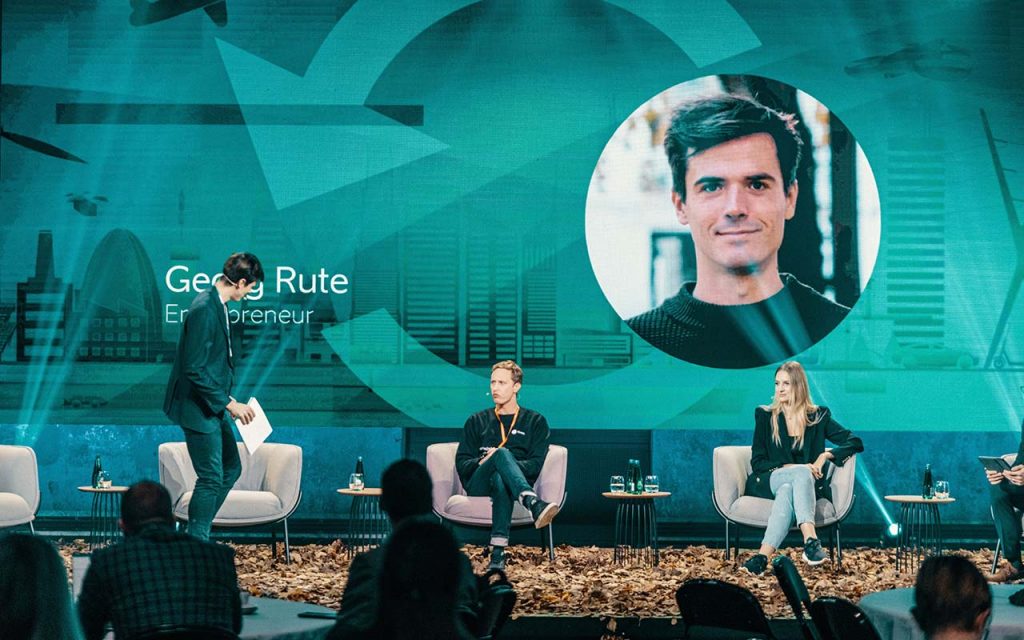
A significant part of your life is philanthropy. We know that for many years you helped the charity platform «Imena» until it was closed, and then transferred money directly to foundations and orphanages. Tell me, how did you get the idea to do charity work?
Charity has always been a big part of my life. I got a lot of help from people when I started my path. So I’m sure that we need to give back to the community.
There are people who don’t have anyone who can help them. We must pay special attention to kids and animals who fully depend on us. It is up to adults to create a good life for them.
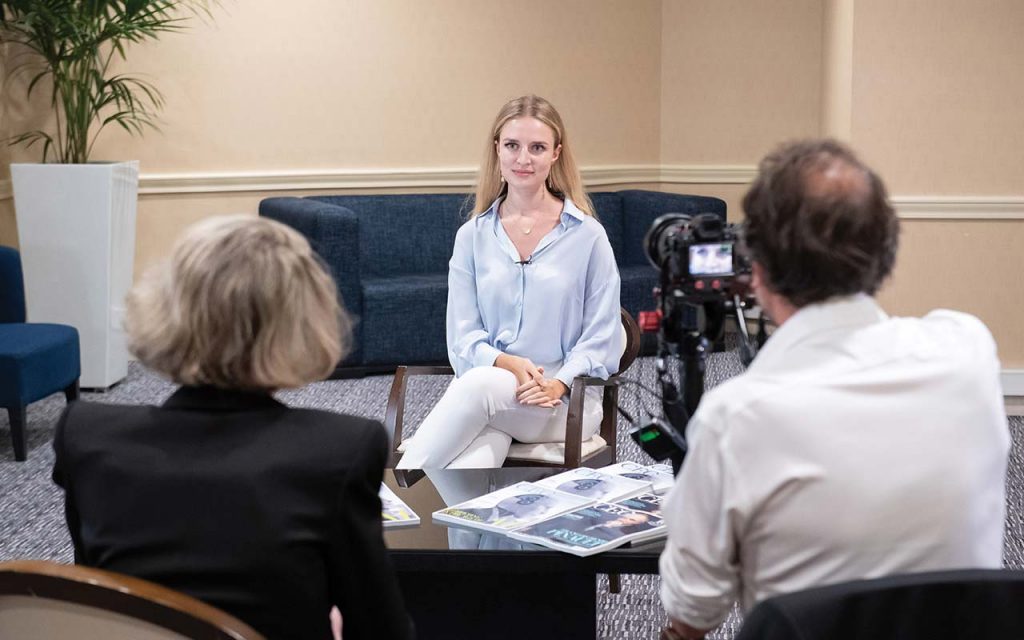
You are a great example of someone who manages to maintain a work-life balance. How did you achieve such harmony? How do you deal with emotional burnout?
Maybe it seems like that but I actually don’t have such harmony. I am in love with my work, so I spend 99% of my time working. I love bringing new technologies to this world.
In the case you have emotional burnout, a good rest and proper sleep will help. When it happens to me, I work more, read, and exercise. For me, reading is a nice escape. Also there is no reason to be ashamed of getting psychological help if needed.
It’s important to remember that there are a lot of things that you can’t control. For example, war in Ukraine.
The last 2 months have been extremely hard for me. We organized the evacuation of team members who agreed to flee Ukraine. But some of them decided to stay and fight for their country. As an employer, I respect this decision and will fully support them. I also have friends in Ukraine who I try to communicate with every day.
It’s hard to read the stories of people who got injured or lost everything. But we should be aware of what is happening so we can prevent it in the future.
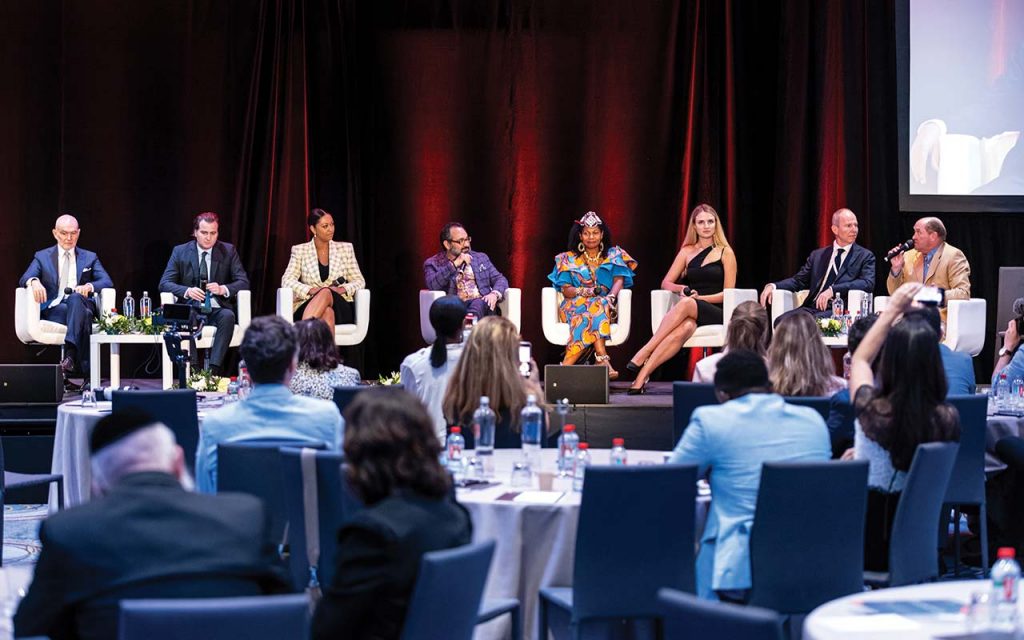
Tatsiana, in one of your last interviews you said that you were going to launch a project that would help women and teenagers adapt to a new country. Please tell us more about this.
For the last several weeks, I have been helping orphanages in Ukraine. I was engaged in relocating children to safer countries or gathering humanitarian aid. We made a big donation from Laava Tech. I gave a donation on my personal behalf.
4 million people have been relocated, and 90% of them are women and kids. These people lost everything. They don’t know foreign languages and need our help to adapt in a new country. So they can live, not just survive.
Our goal is to organize an online project for women and teenage girls. So they will be able to retrain, and get a new profession. And, of course, we will provide them with psychological help. After all the horrors it is almost impossible to deal with them on your own.
We should do everything we can to help them to adapt to new conditions.

